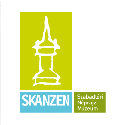MúzeumokMa 2020 (MuseumsToday 2020) research

The aim and relevance of the MúzeumokMa 2020 research
The last comprehensive survey of museums in Hungary was published in 2009 in the project called ‘Magyar Múzeumi Kutatás 2007-2008’ (Hungarian Museum Research 2007- 2008). At the time, 123 museums belonging to the county museum directorates were surveyed through the eyes of nearly 13,000 visitors.
Since then, many studies have been published, but they typically focus only on a specific topic (service museums, museum education in museums, quality management in museums, reception of visitors in museums, etc.)
The main aim of the MúzeumokMa 2020 research programme launched in 2020 is to conduct a comprehensive assessment of the Hungarian museum sector and to collect the opinions and thoughts of professionals and maintaining authorities regarding the current situation. Emphasis is placed on the analysis of statistics and professional assessments, and the comparison of those to opinions. The aims of the research are to support professional and cultural policy-making with data and arguments, to identify future directions for professional development, and to make recommendations.
Another overt aim is to make the heads of institutions, middle managers and opinion leaders think about the issues raised, and possibly bring new perspectives into their thinking, thus supporting the shaping of attitudes in the museum sector.
As a result of the consolidation of the county governments in 2011-2013, the museum system has changed significantly as of 1 January, 2013. County museums are now maintained by the county towns, and the member institutions of county museums are maintained by the local governments. Since then, it has become necessary to analyse the (positive or negative) impact of this change on museums and their maintaining authorities.
The research provides an opportunity to add further data to the results of studies carried out in recent years on specific areas of the museum sector. After analysing the results, we present proposals for solutions to current and acute problems in the museum and public collections sector (revision of wages, keeping people in the profession, management challenges, cooperation). The research team started working on the basis of their own perceptions, insights, experiences, hypotheses and intuitions about ongoing processes in the profession —these are essential for the implementation of research, as they allow to discover, define, and verify the regularities and relationships.
One of these assumptions was, for example, that the change of maintenance that came into force on 1 January, 2013 had a positive impact on country museums, and another was that local governments are not sufficiently aware of the potential of museums and do 2 2 not make sufficient use of their potential in the host towns’ social, cultural, and tourism landscape.
However, it has become clear that the profession may only apply for an increase in funding or an amendment to the law if it has access to well-supported, analysed data.
For further details of the MúzeumokMa 2020 research:
- Introducing the MúzeumokMa 2020 (MuseumsToday 2020) research: the summary is downloadable here
- Sustainable maintenance, modernisation and financing of museums in Hungary: the summary is downloadable here
- Human resources management in museums and keeping museum staff in the profession: the summary is downloadable here
- Directions and possibilities of a service-oriented museum approach: the summary is downloadable here
- The current social functions of Hungarian museums: the summary is downloadable here
- Exploring areas that promote the development of the museum sector: the summary is downloadable here





